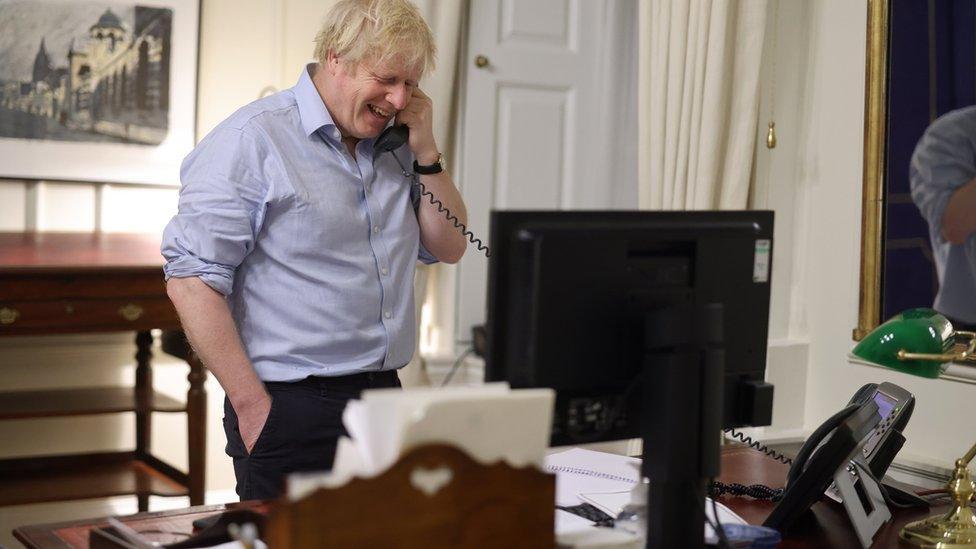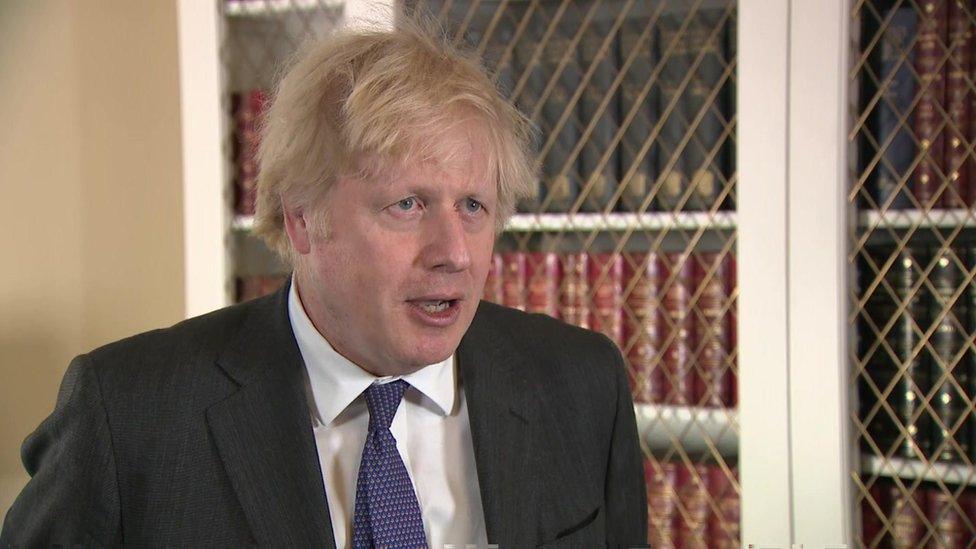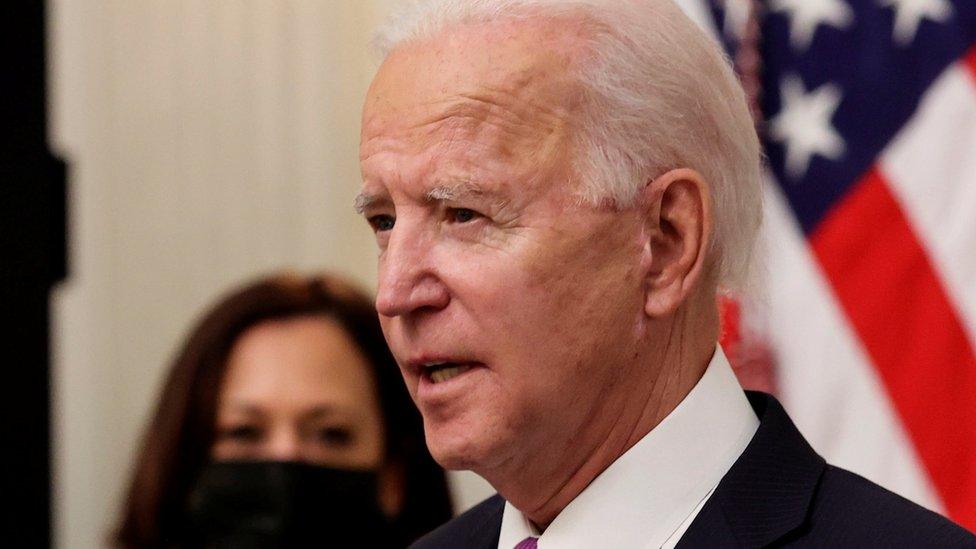PM talks to Biden in first call since inauguration
- Published

Mr Johnson raised the benefits of a UK-US trade deal during his phone call with Mr Biden
Prime Minister Boris Johnson has spoken to Joe Biden for the first time since the new US president was inaugurated.
Mr Johnson said on Twitter, external that he looked forward to "deepening the longstanding alliance" between the UK and the US as they drove a "green and sustainable recovery from Covid-19".
Mr Biden was sworn in as president and Kamala Harris as vice-president in a ceremony in Washington on Wednesday.
The PM said their inauguration was a "step forward" for the US.
A Downing Street spokesman said Mr Johnson "warmly welcomed" the president's decision to rejoin the Paris Agreement on climate change and the World Health Organization - both abandoned by Mr Biden's predecessor, Donald Trump.
"The prime minister praised President Biden's early action on tackling climate change and commitment to reach net zero by 2050," the spokesman said.
The spokesman added that, in building on the two nations' "long history of cooperation in security and defence, the leaders "re-committed to the Nato alliance and our shared values in promoting human rights and protecting democracy".
The two leaders also talked about "the benefits of a potential free trade deal" between the UK and the US, with Mr Johnson reiterating his intention "to resolve existing trade issues as soon as possible".


After the inauguration of any American president, a political spectator sport immediately begins: the order in which the new occupant of the White House speaks to other world leaders.
It is a crude metric of relative importance, but a metric nonetheless.
I understand the call lasted for around 35 minutes and was the first conversation Joe Biden has had with a European leader as president.
The focus on climate change makes political and diplomatic sense. It's a topic where a Conservative prime minister and Democrat president can agree, and it matters particularly to the UK as the host of the COP26 UN Climate Change Summit in Glasgow in November.
But when you compare what Downing Street said about the call and what the White House said, one thing leaps out.
No 10's readout refers to a conversation about a trade deal. President Biden's does not.
It's widely expected there'll be no such agreement any time soon.

Mr Johnson and Mr Biden "looked forward to to meeting in person as soon as the circumstances allow" and to working together during the forthcoming G7, G20 and COP26 summits, the spokesman added.
A White House statement said Mr Biden "conveyed his intention to strengthen the special relationship" between the US and UK and "revitalize transatlantic ties".
Congratulating Mr Biden and Ms Harris - who is the first woman and first black and Asian-American person to serve as vice-president - the PM said earlier that their inauguration was a "step forward" for the US, which had "been through a bumpy period".
Johnson: "It's a big moment for us - we have things we want to do together."
Mr Johnson said it was a "big moment" for the UK and the US and their "joint common agenda".
The BBC's political editor, Laura Kuenssberg has said the Biden Presidency "brings some hope to government" because No 10 believes "there is a lot of overlap" between what Mr Biden and Mr Johnson want to do.
The US president has previously said that he does not want a "guarded border" between the Republic of Ireland and Northern Ireland following Brexit, and that any UK-US post-Brexit trade deal had to be "contingent" on respect for the Good Friday Agreement.
The PM and Mr Biden have never met in real life, but the new US president once referred to Mr Johnson as a "physical and emotional clone" of Mr Trump.
After winning the presidential election, Mr Biden phoned Mr Johnson ahead of other European leaders and expressed his desire to strengthen the historic "special relationship" between the two countries.
- Published21 January 2021

- Published20 January 2021
- Published23 January 2021
